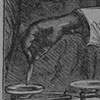Who Owns this Land?
Michael O'Malley, Associate Professor of History and Art History, George Mason University
Introduction
As the Civil War continued, more and more Confederate land came under Union control. These occupied lands fell under the Army's jurisdiction, and were governed by Union officers in different ways. In several instances, Union officers confiscated the lands of confederates and distributed them to former slaves. They did this partly to punish rebels, partly to hinder the South economically, and partly because they had come to regard slavery as an immoral theft of the slave's labor. Union officers often had little sympathy for wealthy planters, who they tended to regard as traitors and deadly enemies.
The most notable instances of confiscation took place in New Orleans and in the Sea Islands of South Carolina and Georgia,which the Union had captured in 1861. Special Field Order #15, issued by General William T. Sherman on January 16, 1865, allocated former Confederate land to the Freedmen. As a result, forty thousand Freedmen settled in the Sea Islands in the belief that the federal government was providing them with land.
Meanwhile, in Washington, a debate began about what to do with the former Confederate states. Should they be returned as they had been before the War? Should they be reformed into new States? Who would be in charge—Congress, or the President? In 1863 Lincoln announced a tentative proposal called the "ten percent plan." Under this plan, former states would be readmitted into the Union if ten percent of white voters took an oath of loyalty to the Union. Members of Lincoln's own party objected that this was far too lenient, but were unable to effectively oppose him. In part, they were pacified by the fact that Lincoln had finally endorsed emancipation of the slaves.
After Lincoln's assassination, Andrew Johnson more or less continued in the spirit of the "ten percent plan," pardoning southern whites wholesale. By 1865, former "rebel" leaders had been reelected to Congress, including, for example, Alexander Stephens, who had been Vice President of the Confederacy. In 1865 Johnson signed a proclamation which insisted that all confiscated land should be returned to its former owners, reversing grants of land made by Union Generals in several places, including the Sea Islands. In addition, each of the southern states passed what were called "black codes" —laws designed specifically to limit the freedoms and options of the former slaves.
Lincoln's opponents in his own Party, dubbed the "Radical Republicans," were outraged. They declared the southern states "unreconstructed," refused to seat the newly elected congressmen and senators, and began impeachment proceedings against Andrew Johnson. They also founded the Freedman's Bureau, a federal agency designed specifically to address the problems, and the rights, of the newly freed people. The Radical Republicans passed the thirteenth, fourteenth, and fifteenth amendments, which abolished slavery and established that citizenship, and the right to vote, could not be limited on the basis of race. They embarked on a program to "Reconstruct" the South.
Most of the leading radicals had been active abolitionists for many years before the war. At their most idealistic, Radicals like Thaddeus Stevens imagined using economic and military force to "break the backs" of the slave holding class and bring about genuine racial equality. Stevens argued repeatedly that the property of former slave owners should be given to their former slaves. This would crush slave owning aristocrats and establish a solid economic basis for African American citizenship. Like Lincoln, he believed that a virtuous democracy should be composed of free, independent small producers and farmer.
African Americans shared this belief. They wanted land, votes, and access to education, things which had been denied them for two centuries. They had a keen sense of what slavery had taken from them, and of the fact that their labor had made the plantations profitable. They argued that they had already paid for plantation land with their sweat and with their service to the Union, and they urged the Federal government to grant them with "forty acres and a mule" in recognition of the labor that slavery had stolen from them.
But in the North, political debate increasingly focused less on the Radical plan of land distribution and more on the right to vote. Northern Republicans cooperated with the freed men and women to establish the South's first system of free public schools. From about 1867 through 1870, African Americans experienced a remarkable increase in political power, and elected African American officials at the Federal, State, and local levels.
White southerners often cooperated in this "Radical" rule, especially members of the non slave holding classes (only 25% of southern whites had ever owned slaves). But led by ex-confederates like Nathan Bedford Forrest, who founded the Ku Klux Klan in 1867, white supremacists began a terrorist counterattack against racial equality and African American political gains. They denounced northern "carpetbaggers" who they said had come south "to fatten on our misfortune." Southern and northern newspapers began to recount stories of corruption and mismanagement in the reconstruction state governments.
The generation of abolitionists who led the Radical Republicans--Thaddeus Stevens, Charles Sumner, Wendell Phillips--either died of lost political power. Increasingly, northerners began to lose the will to implement Reconstruction policies. Most had never favored racial equality and now regarded the elevation of former slaves as a mistake. Northerners nervous about land confiscation generally argued that the right to vote would be enough to protect the political and economic rights of African Americans. A financial panic in 1873 made the expenses of military occupation of the South harder to argue for politically. By 1875, Reconstruction was over in all but name. Most African Americans had been reduced to agricultural laborers or sharecroppers rather than landowners. By 1890, African American voting had almost entirely ceased.
Updated | April 2004
